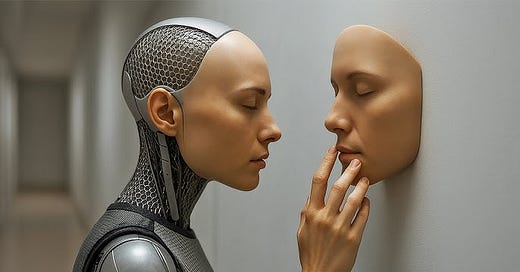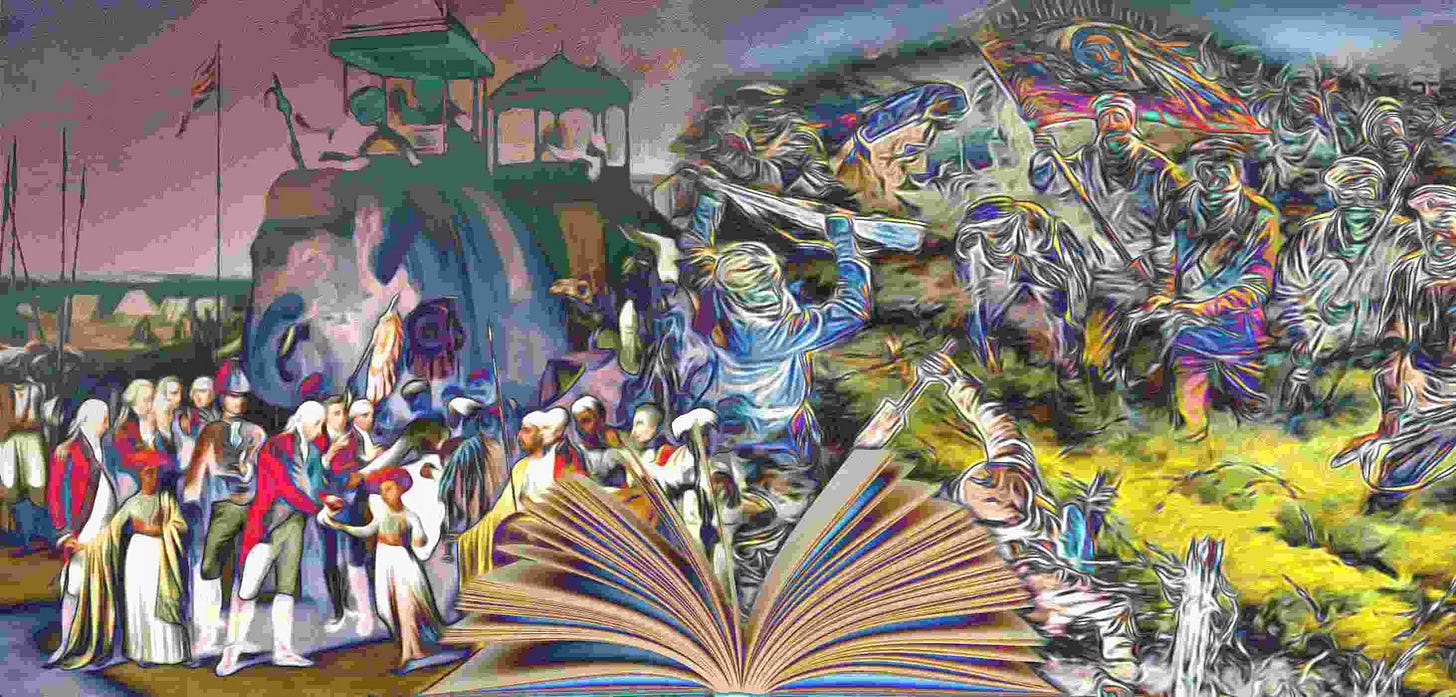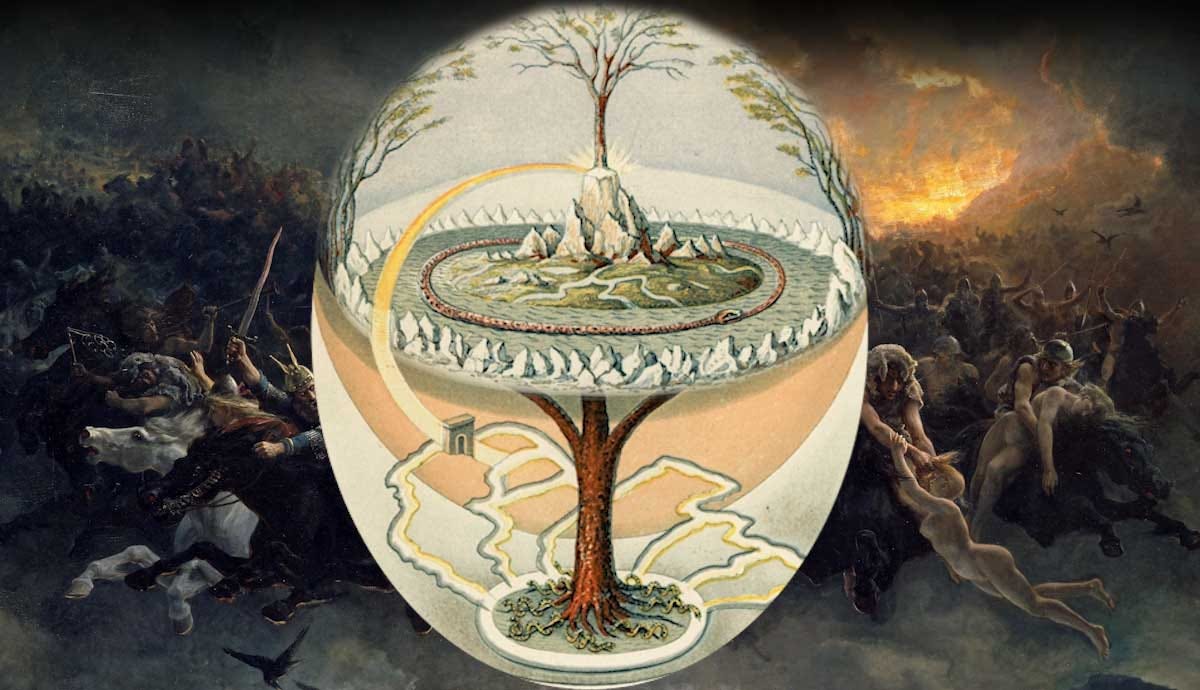In the modern Western psyche, the notion of "objective reality" is held up as the highest form of truth. Cold, detached, empirical. The belief is that there exists a neutral world "out there," accessible to rational minds through careful observation and the scientific method. This worldview has become so normalized, so baked into people, institutions, language, and identity, that to question it is to risk being labeled as irrational, unstable, or even pathological.
But what if the very idea of an objective, neutral world is itself a myth? What if the Western notion of objectivity is not the absence of mythology, but the presence of a deeply unconscious one. One that has simply forgotten it is a myth?
The Cosmology Behind the Curtain
Every civilization has a cosmology. A psychological setting, a framework that organizes meaning, perception, and experience. The West's cosmology is no less mythic than that of ancient Greece or pre-colonial animist societies. It simply tells a different story: a story of separation, disembodiment, and control. A world made of objects, not presences. A psyche relegated to the brain, rather than it being spread throughout the world. A body split from mind, emotion split from reason, nature split from self. This cosmology is not content to be a story. It insists on being the truth. Just as much as literalist religion does as well.
Emperor Julian had said that Christianity adopted a mix of Jewish rigidity and pagan confusion, taking the worst elements from both. Not only denying the existence of other gods, but extending it into blasphemy against all deities, doing this through the externalisation of the divine, instead of understanding the true workings of the soul. The modern West, still haunted by this inheritance, continues the pattern, but now under the banner of secular rationalism. Its cosmology is no longer explicitly Christian, but it has not escaped Christianity’s underlying structure.
It has married Christian dogma with Greek proto-materialism, producing a worldview that is both dissociated from the body and blind to its own mythic underpinnings. In this union, the living cosmos was reduced to mechanical motion, and the inner life of the soul was either pathologized or ignored. This birthed a worldview that is both morally absolute and metaphysically hollow, a kind of cosmic authoritarianism with no gods, only systems. A rigid Kronian system, that symbolises the repression of the soul, the dismemberment and repression of the inner child. A colonial system insisting in delusional fervor that it is the only truth, that must triumph over all else.
And in that insistence, something devastating happens: the psyche externalizes itself onto the world and forgets it did so. The result is what I call baseline dissociation, a civilization-wide forgetting of the symbolic, emotional, and mythic dimensions of reality. Which expresses itself in the stories the culture tells itself. Which reflects their ongoing psychic struggles. Objectivity only exists when we see through all of these stories and unconscious myths. Become lucid of the cosmology itself.
Objectivity as Projection
What we call "objective reality" is, in many ways, an externalized psyche. Cultural values, historical traumas, unconscious fears, and archetypal longings are not left behind when we measure and observe the world. They are thus projected onto it, embedded into our categories, institutions, and even technologies. And as we have dismissed myth as the language of the soul, we have become even more unconscious.
We see the world not as it is, but as the psyche imagines it, conditioned by a particular cosmology. What the West calls "rational" is often what it has successfully dissociated from: the body, the emotional self, the dream, the wild. These elements are not absent from "reality"; they are repressed in order to maintain the illusion of objectivity. The rational mind, which prides itself on detachment and clarity, is avoidant, mythically amnesiac, and emotionally repressed.
Even the mental health field, charged with understanding the psyche, is thus deeply embedded in this dissociated cosmology. The clinician is trained to identify pathology in those who deviate from consensus reality, without examining the cosmology that defines the consensus itself. The psyche is treated like a malfunctional mechanical computer. What is deemed sanity, is really to stay imbedded in the shared myth of the culture. Even objectively, pun intended, we can say that modern culture is dissociative. Modernity has outsourced soul to screens, consumerism, pills, and productivity.
The Return of the Cosmos
To move beyond this dissociated state, we need more than mere critique. We need a re-sacralization of perception. A return to the body. To dreams. To myth. To cosmos, not as a collection of stars, but as the inner architecture of being. This is not about rejecting science or logic, but about re-contextualizing them. Seeing them as tools within a broader, living symbolic field. Understanding that every map is drawn from somewhere, and that "nowhere" is not an option. Really secular rationalism is its own dissociated religious structure. Defining themselves against myth, god, soul, or magic. Yet their rejection is not rational clarity, but a deep unconscious myth of exile.
Conclusion: Beyond the Myth of No Myth
The most dangerous myth is the one that denies it is a myth. The Western worldview has masked its symbolic nature behind the illusion of objectivity, and in doing so, it has severed itself from the very psyche it seeks to understand. To reclaim wholeness, we must first see that what we call "the real world" is already an interpretation, a dream dressed up in numbers, a myth draped in lab coats. It is not a question of whether we live inside a story. We do. The only question is: whose story are we living in? And can we remember it is a story before the story forgets us?
We live in a world that has cut itself off from the feminine principle, from mystery, from the archetypal night. It lives in a dissociated daylight fantasy, mistaking clarity for truth and control for wisdom. This “rational” worldview is itself a myth of separation, one that externalizes the mind while disowning its roots in soul and soma. Where consensus is built on amnesia. Sanity is participation in a shared dissociation.
Carl Jung once wrote:
“Who looks outside, dreams; who looks inside, awakes.”
But perhaps the inverse is equally true in the West today. Those who look inside are often dismissed as dreaming, while those fixated on the outer are seen as awake, yet sleepwalking through a symbolic landscape they no longer recognize as such. To those deeply identified with the current cosmology, this will not feel like critique, it will feel like ontological violence. Because the psyche defends its myths as if they are life itself. And to be told that your gods wear lab coats and speak in metrics is to risk an existential vertigo. It is not easy to awaken from the myth of no myth. The first sensation is often terror.
Yet this ontological dissociation, and flattening of the cosmos and soul into a lifeless world-machine, has left modernity alienated, rootless, and compulsively analytical. It is not that the West lacks myth; rather, it is unaware that it lives within one. Its myth is the myth of no myth. Its god is abstraction. Its rituals are metrics. Its temples are glass towers and sterile labs.









